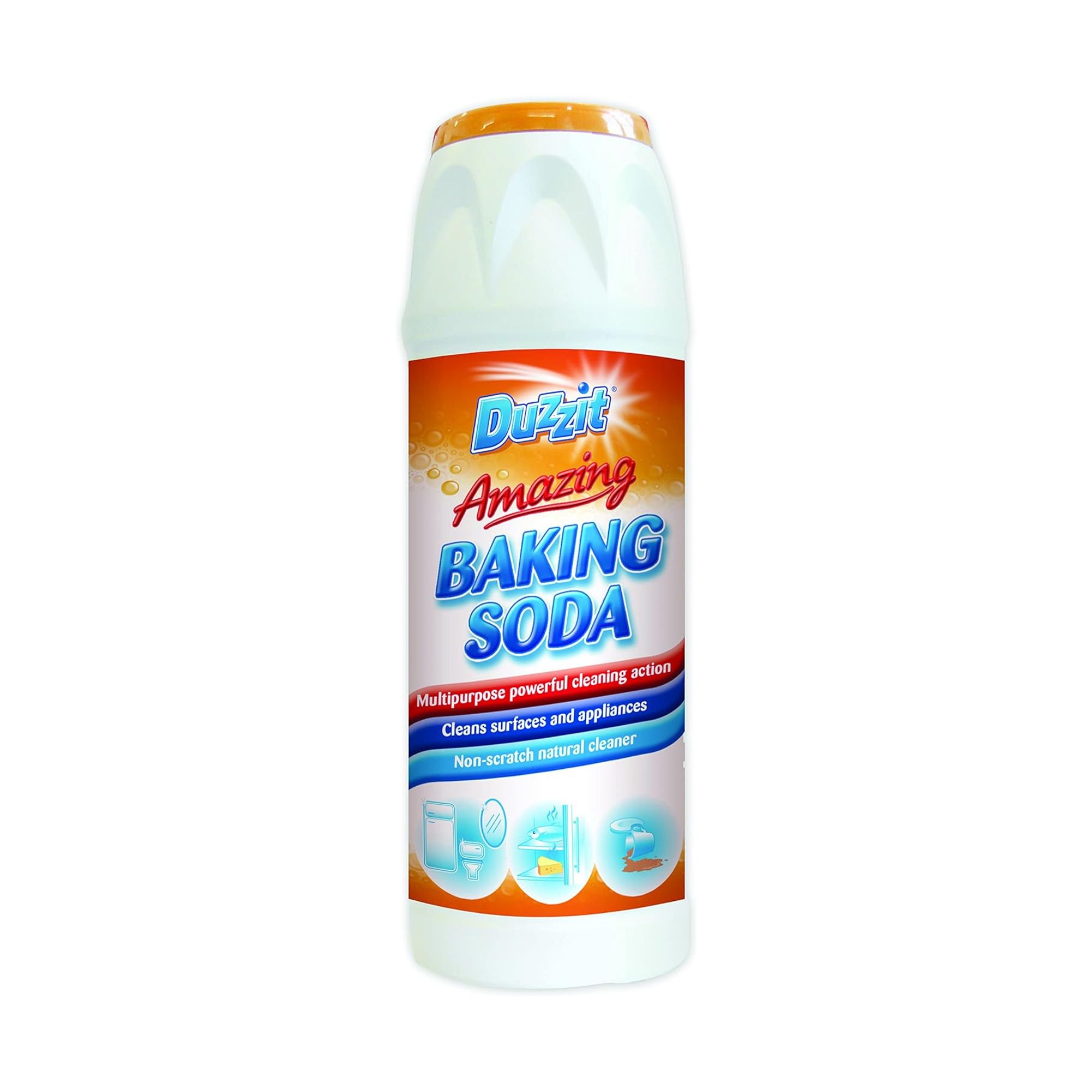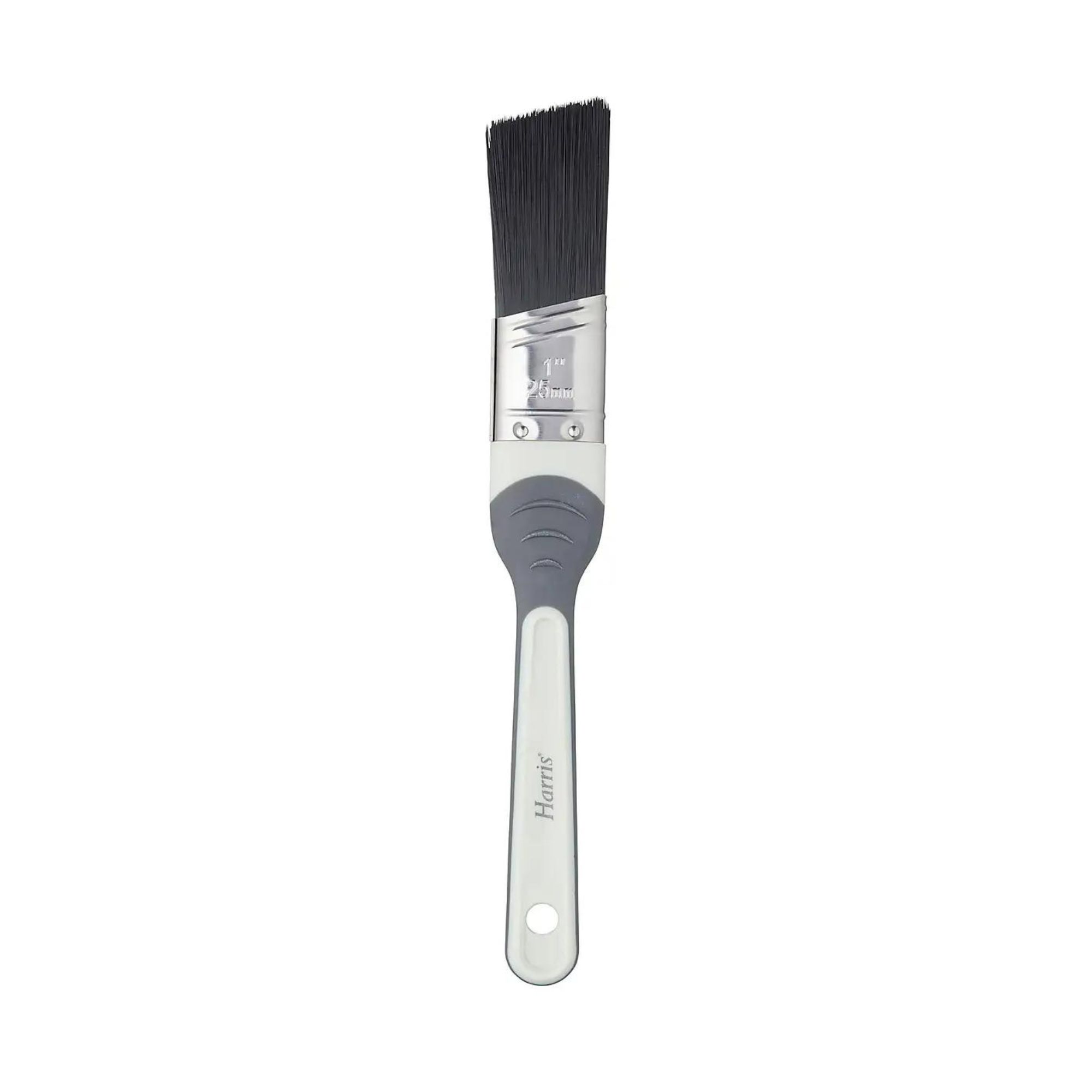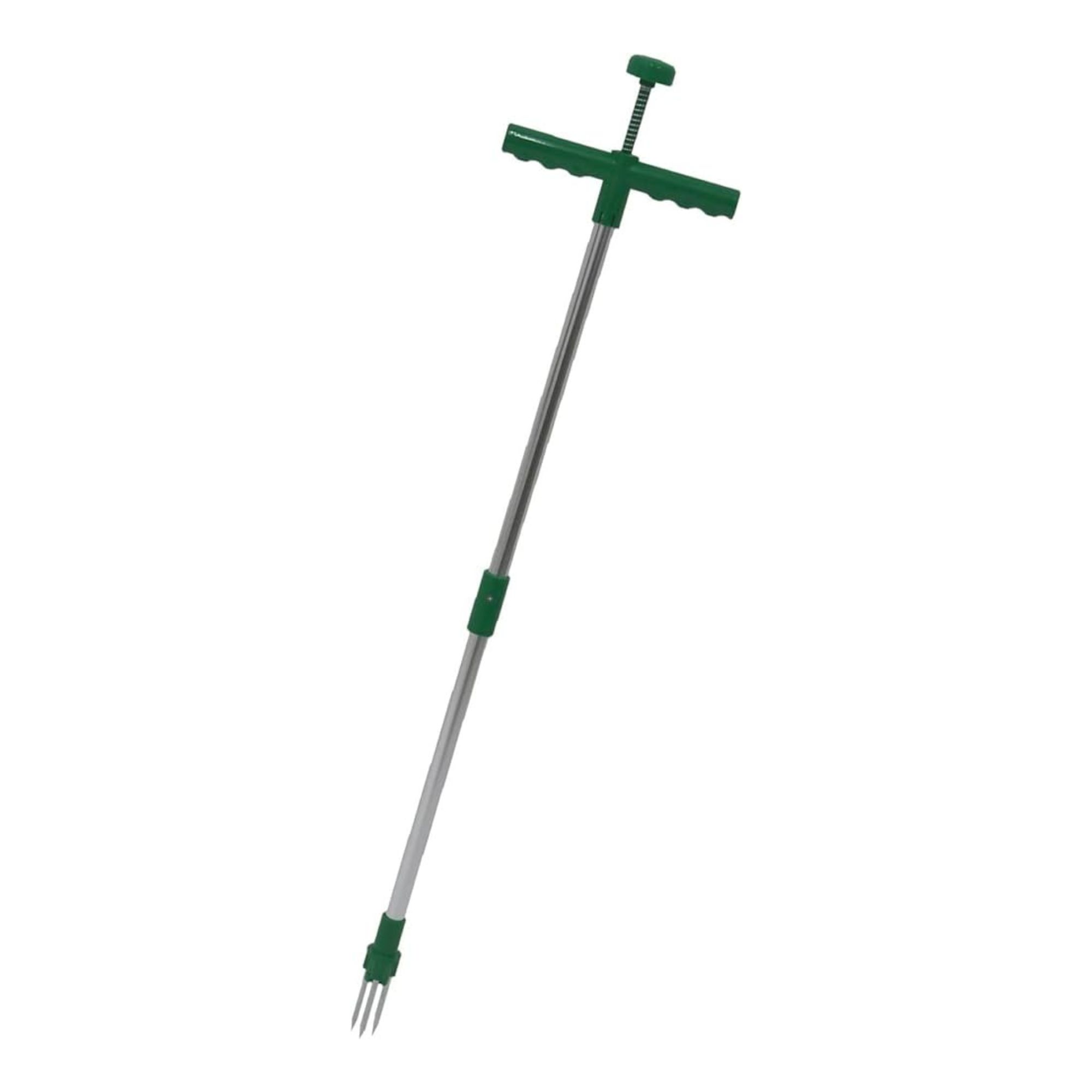Does baking soda kill weeds? Yes, but experts urge you to think twice before using this cupboard essential in your garden
Yes...but it’s not the only thing it can kill
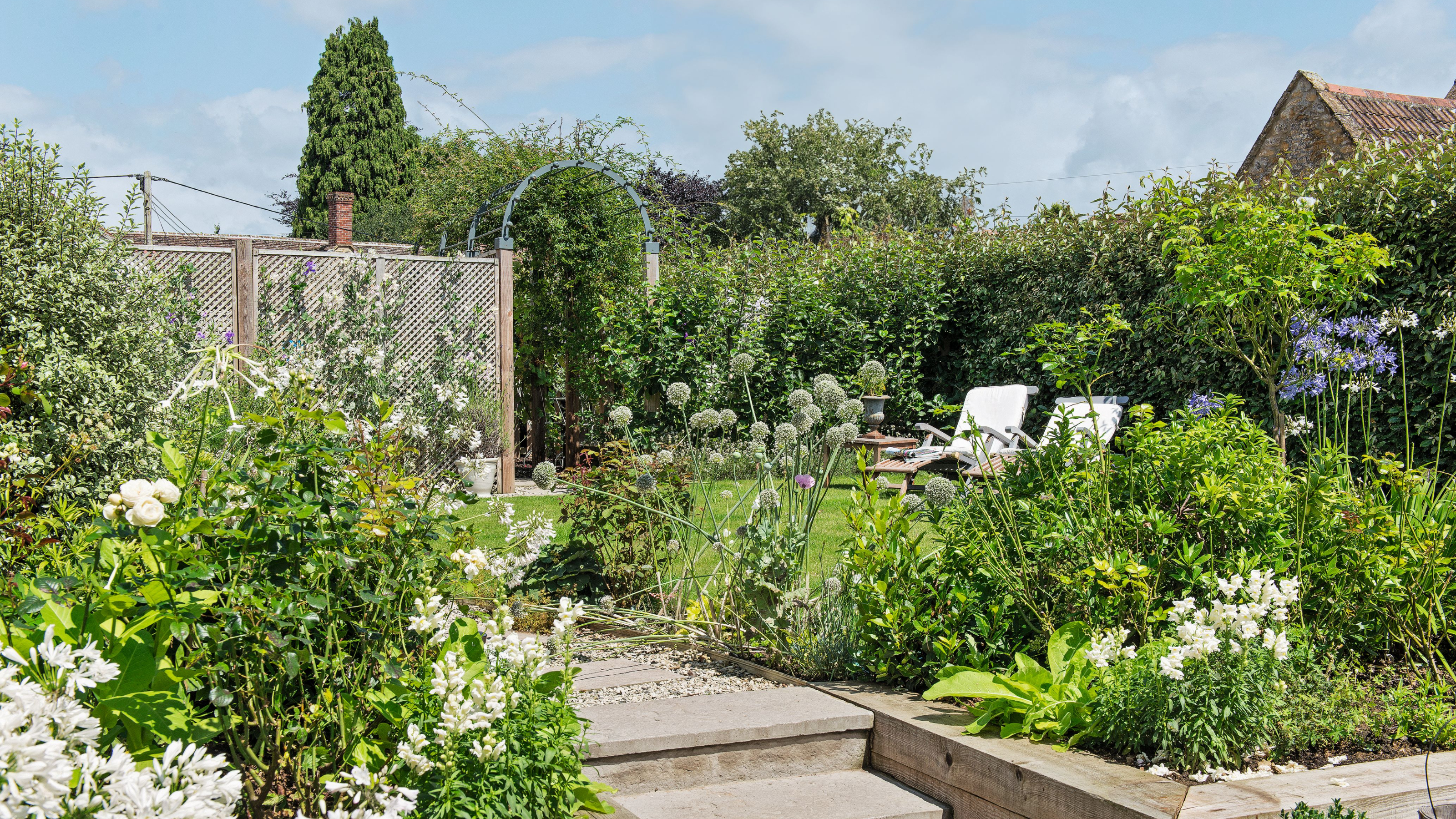

Ellis Cochrane
Baking soda is one of the handiest items to have in our homes. Not only is it an essential component in many of our favourite bakes and dishes but it also has a number of other functions, from eliminating odours and whitening laundry to cleaning stubborn stains. And because of this, you might have found yourself asking, does baking soda kill weeds?
Weeds can instantly give our gardens, patios and driveways a bit of an unkempt appearance and if you’ve tried quite a few ways to kill weeds, you’ll probably be on the lookout for other methods to make the job that bit easier. And that’s where baking soda – or bicarbonate of soda, as it is also known – could be a good alternative.
You might have already turned to some natural remedies to deal with your weeds in a bid to steer clear of more chemical-filled weed killers. For example, using salt to kill weeds and white vinegar to kill weeds. But despite it being possible to use baking soda to kill weeds, experts urge gardeners to be cautious when using this popular cleaning product in their outdoor spaces.
Does baking soda kill weeds?
While you may have already mastered the baking soda sofa cleaning hack, what you might not realise is that this product is pretty universal. In addition to helping you clean inside your home, it can also help you tidy up the outside of your home - especially if you’re looking to get rid of pesky weeds.
That’s because baking soda - AKA sodium bicarbonate - is essentially a salty alkaline powder that dehydrates and kills weeds in their tracks. In fact, Ted Bromley-Hall of UK landscaping materials manufacturer IBRAN, explains, ‘For the weed, it's death by thirst!’
'Baking soda is composed of sodium and bicarbonate and is slightly alkaline, which makes it good at desiccating plants, drying them up so quickly and effectively that it's impossible for them to drink any more water.’
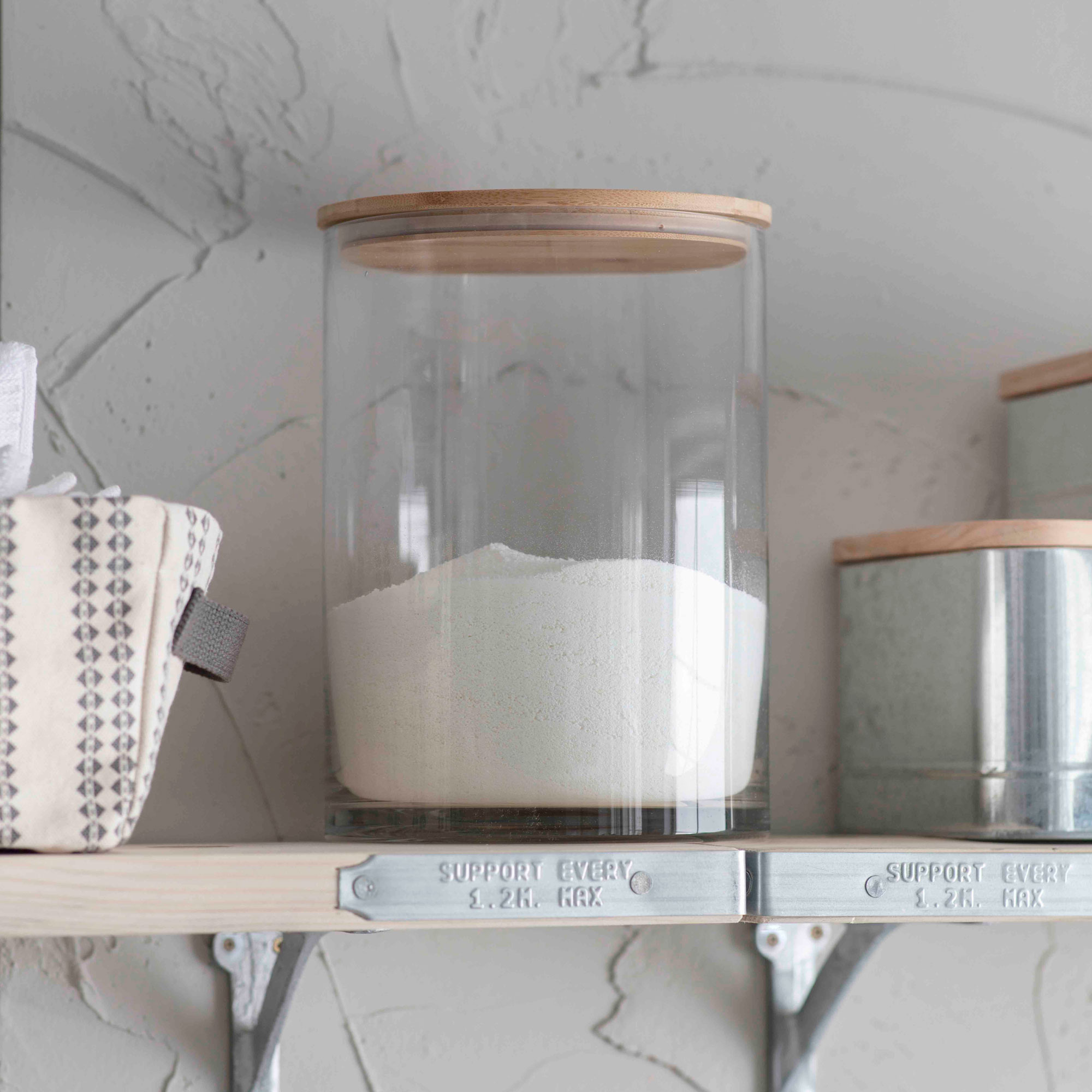
When this happens, it shouldn’t take long for the foliage to die. Then, you should be able to pull up the weeds (including the roots) and prevent them from returning. There’s an art to successfully killing weeds with baking soda, though.
Get the Ideal Home Newsletter
Sign up to our newsletter for style and decor inspiration, house makeovers, project advice and more.
‘You'll need around a tablespoon per litre of water as a baseline, whilst larger, more established weeds will need stronger concentrations to shift,' says Ted. 'It's also best to apply the solution to the plant on sunny days, as rain will dilute or wash away the soda.’
And while you may be inclined to simply fill a spray bottle with water and baking soda, Ted urges you to consider a different option.
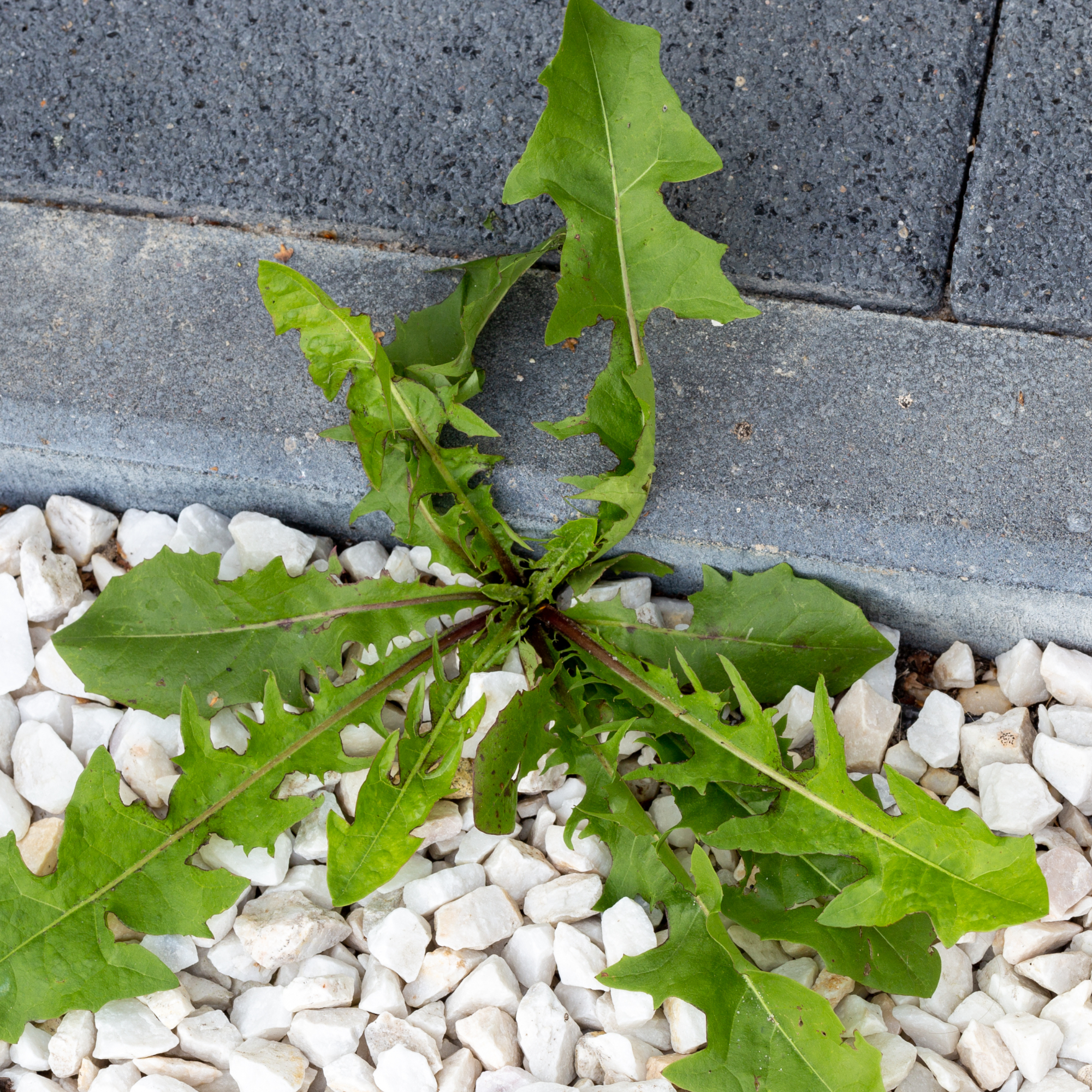
‘You can put the solution into a spray bottle, but it will result in the bottle "furring up",’ Ted explains. ‘Plus, it's harder to control the application as the spray nozzle could end up spraying it onto plants you want to keep. The most direct way to apply the solution is to paint it onto the weeds.’
‘As the sun evaporates the water from the bicarb solution, it leaves behind a baking soda "film" around the outside, which pulls water out through the pores in the leaves, which in turn pulls moisture up through the stem, drying out the whole plant.’
But while using baking soda is a nifty hack, it’s important to understand that killing weeds with baking soda isn’t always the right course of action. In fact, there are quite a few things that you should never clean with bicarb - which is why it’s essential to keep this product away from your precious lawn and plants.
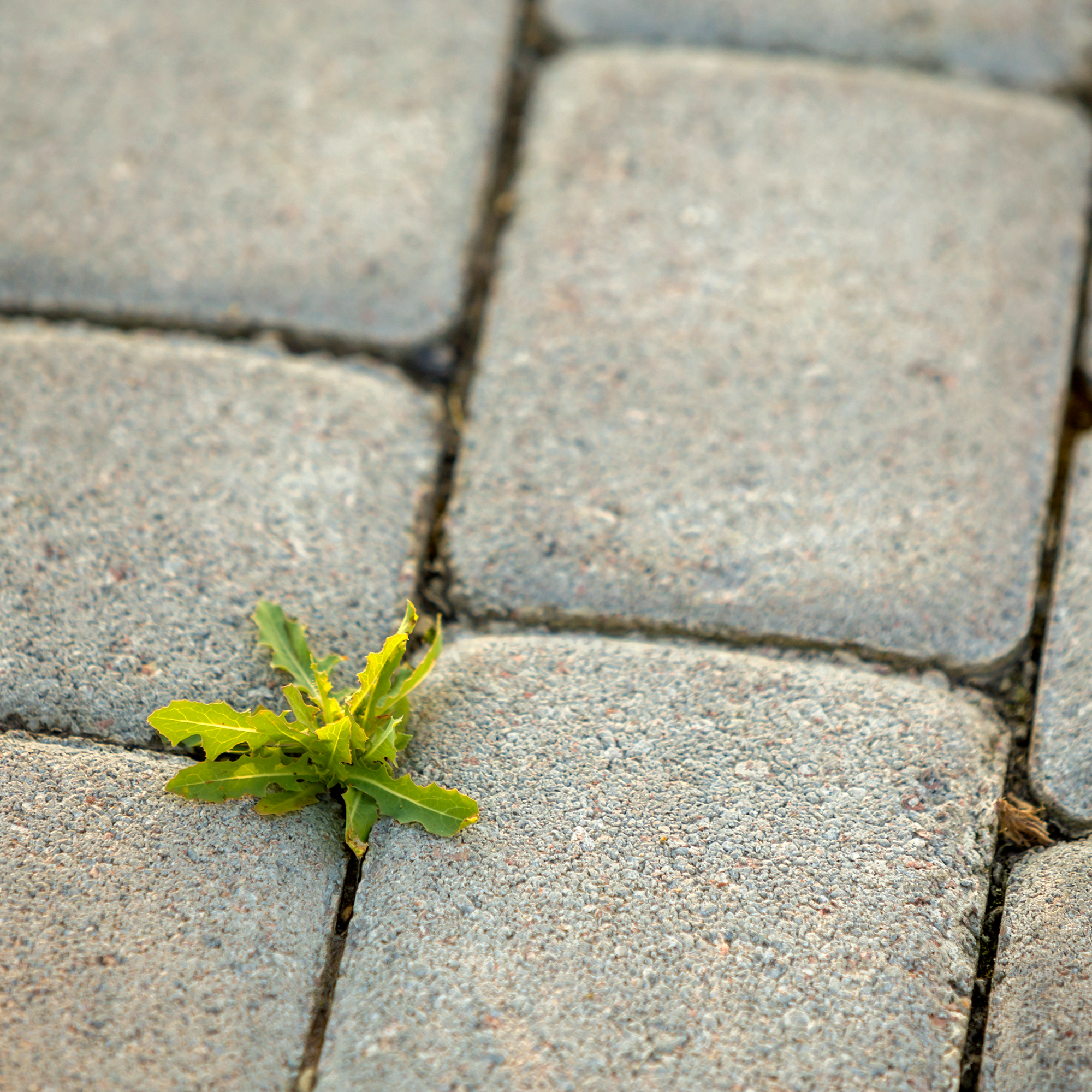
This is because the high salt content in baking soda won’t just kill weeds. It will also kill any greenery that it comes into contact with, leaving you with dead grass and dried-up garden borders.
Instead, you should focus on learning the correct way to get rid of weeds in a lawn and using a plant-friendly alternative around other plants.
‘Personally, whilst baking soda is a good option for tackling weeds, as is vinegar, nothing can beat doing it manually with some sturdy gloves and a shovel of some kind, digging or pulling them out by the root,' says Thomas Hamilton from WeedingTech. 'It might take longer, but it's good exercise, and it should permanently kill the weed - if you can get all the roots out!’
This chemical-free option is echoed by John Clifford, the garden expert at Gardenstone. ‘For a more trustworthy but natural way to remove weeds, you should pull the weeds up by hand, or by using a weed removal tool,’ he urges. ‘Always try natural methods before you choose chemical weed killer, as weed killer can prove dangerous to wildlife and your garden environment.'
What you’ll need
FAQs
How long does it take baking soda to kill weeds?
Unfortunately using baking soda to kill weeds isn’t a quick fix. The experts all agree that it can take anywhere from a few days to a week for you to notice a real difference after applying the chemical compound. So, don’t feel too discouraged if you don’t notice an immediate difference to the pesky weeds in your garden or on your patio or driveway after a day or two, it is highly likely that it just needs a few more days to do its thing.
‘You should see the leaves start to turn brown and die, which then allows you to pull them up by the roots to make removing them easier,’ admits Andy Ellis, a former professional gardener from Posh UK.
Which weeds does baking soda work best on?
If you’re wondering whether or not it will work on your weeds, Steven Bell, ex landscape gardener and owner of Paving Shopper, explains, ‘in my years of gardening, I’ve seen baking soda work wonders on smaller, broadleaf weeds like dandelions, crabgrass, and clover. These weeds have a larger leaf surface area that absorbs the baking soda more effectively.’
Unfortunately, it's not as effective on larger, more established weeds with deep root systems but you can still try doing a few more applications or combining it with other methods to get the results that you’ll be looking for.
Where is the best place to use baking soda to kill weeds?
‘Baking soda is most effective on small, young weeds and those growing in cracks or crevices, such as in driveways or between pavers,’ suggests Halton Stairlifts’ home and garden expert, Neil Mckenzie.
Essentially, you’re looking for areas where you can precisely control where the baking soda will be applied, instead of it being scattered more generally on your lawn or in your flower beds where it could stray onto your beloved blooms and plants, in addition to the weeds.
Should you take any precautions when using baking soda to kill weeds?
You’ll also want to take a few precautions as you go to use this weeding method. First and foremost, try to pick a dry and warm day. The last thing you want is to have gone to the bother of applying it all over your weeds only for the rain to wash it away or the wind to scatter it across your garden. We always recommend wearing gardening gloves when completing this kind of task in your garden, as it prevents any skin irritation, particularly if you have sensitive or reactive skin.
It’s also important to realise that ‘excessive use of baking soda can alter your soil's pH, making it more alkaline, which can affect nutrient availability for your plants,’ warns Steven from Paving Shopper. ‘For example, plants might struggle to access iron in highly alkaline soils, leading to chlorosis (yellowing leaves).’ So, this is why you really want to ensure that you use it as a targeted treatment, instead of more generally.
Plus, baking soda is non-selective, meaning that it can harm any plant it touches, which is another reason to ensure that you are as precise as possible when applying it.
Which is better, to kill weeds with vinegar or baking soda?
If you’ve also wondered if vinegar might be better for banishing weeds, especially when compared with baking soda, they each have their pros and cons. Vinegar ‘instantly dehydrates the weed, showing results within 24 hours and causing them to wilt away,’ Andy clarifies.
So this might be a better option for you if you’re looking to deal with weeds in a more timely manner. However, both methods are most effective on weeds that are still young and small as opposed to grown weeds and can affect the soil's natural pH and harm nearby plants, if not used sparingly and precisely.
‘Personally, I prefer vinegar for fast-acting results on young weeds and baking soda for more controlled, strategic applications,’ concludes Steven from Paving Shopper.
So, yes, baking soda does indeed kill weeds – but you need to make sure it doesn’t kill anything else in your garden, too.

Lauren Bradbury has been the Content Editor for the House Manual section since January 2025 but worked with the team as a freelancer for a year and a half before that. She graduated with a Bachelor’s degree in English and Creative Writing from the University of Chichester in 2016. Then, she dipped her toe into the world of content writing, primarily focusing on home content. After years of agency work, she decided to take the plunge and become a full-time freelancer for online publications, including Real Homes and Ideal Home, before taking on this permanent role. Now, she spends her days searching for the best decluttering and cleaning hacks and creating handy how-to guides for homeowners and renters alike, as well as testing vacuums as part of her role as the Ideal Home Certified Expert in Training on Vacuums, having spent over 110 hours testing different vacuum models to date!
- Ellis CochraneContributor
-
 My go-to Ninja coffee machine is on sale for Easter weekend
My go-to Ninja coffee machine is on sale for Easter weekendIt makes coffee shop quality achievable at home
By Molly Cleary
-
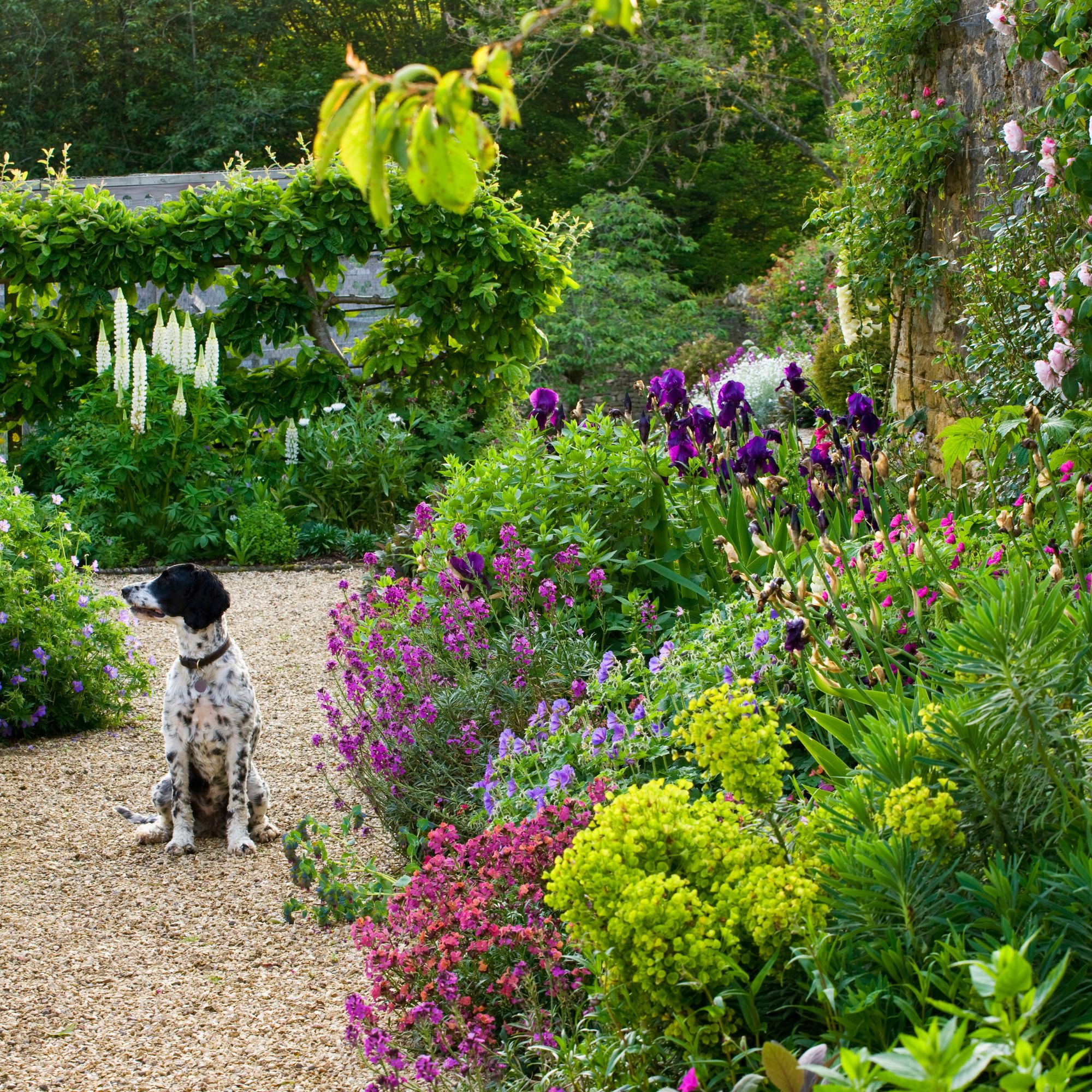 When to plant out annual flowering plants for vibrant, colourful garden borders – and give them the best start, according to experts
When to plant out annual flowering plants for vibrant, colourful garden borders – and give them the best start, according to expertsNot sure when to plant out annual flowering plants? We've got you covered...
By Kayleigh Dray
-
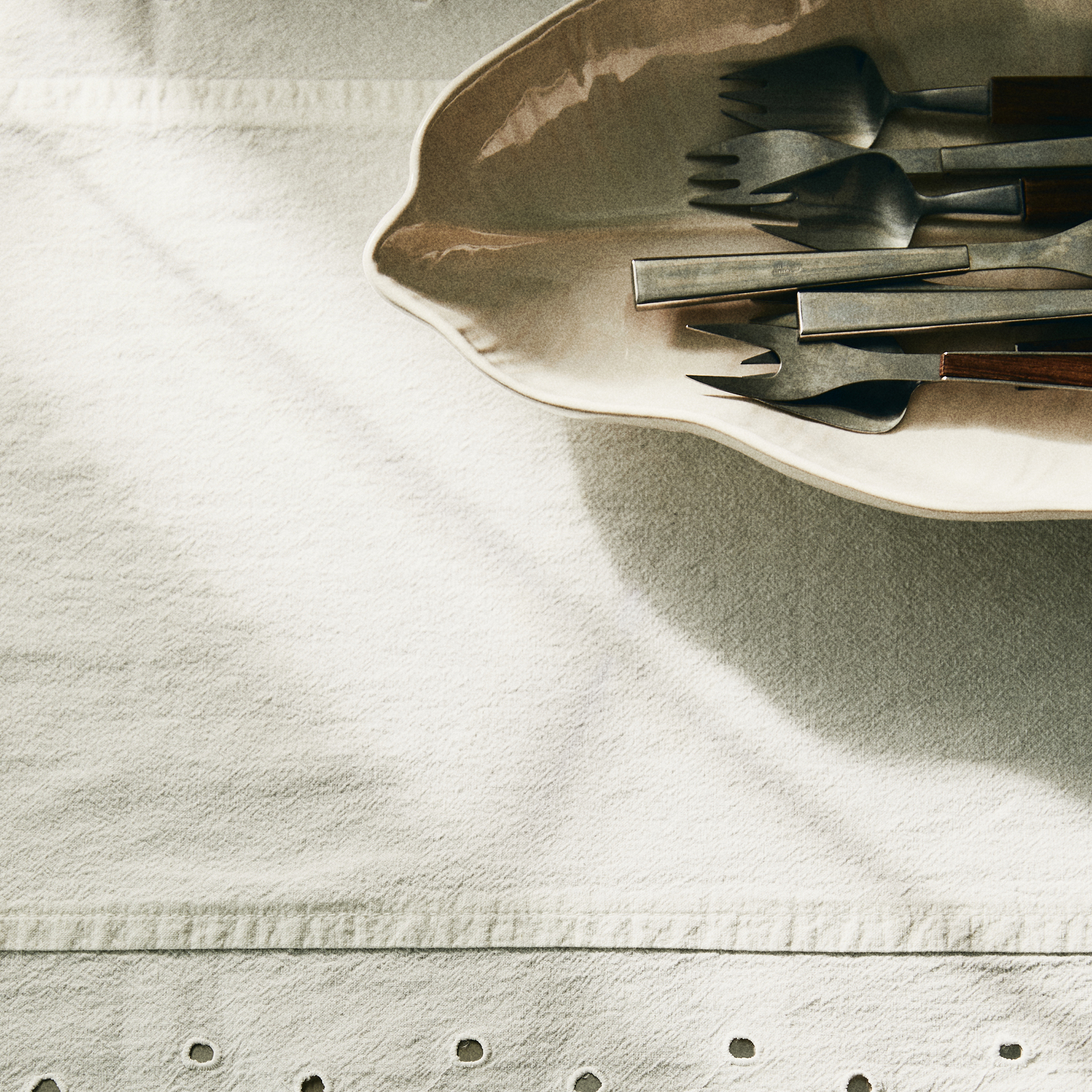 I'm a kitchen decor editor and didn't like this tableware trend - until I saw H&M Home's designer-look plates
I'm a kitchen decor editor and didn't like this tableware trend - until I saw H&M Home's designer-look platesThey made it easy to justify a new crockery set
By Holly Cockburn
